Fitness plays a pivotal role in the well-being of seniors, serving as a cornerstone for maintaining their health, vitality, and independence as they age.
As the golden years unfold, prioritizing physical activity becomes increasingly imperative for seniors to enhance their quality of life and mitigate age-related challenges.
Regular exercise offers a multitude of benefits, from strengthening muscles and bones to boosting mood and cognitive function. Moreover, it fosters social connections, instills confidence, and promotes longevity.
By engaging in tailored fitness regimens, seniors can navigate the journey of aging with resilience, grace, and a zest for life, ensuring they remain active participants in their own story.

15 Reasons Why Fitness Is Important to Seniors
Fitness is crucial for seniors for a multitude of reasons, encompassing both physical and mental well-being.
Here are the key points that illustrate the significance of fitness for older adults:
1. Maintains Independence

Regular exercise not only helps seniors maintain their ability to perform daily activities independently but also enhances their overall quality of life.
As we age, maintaining independence becomes increasingly important for our sense of self-worth and dignity.
By engaging in physical activities such as walking, stretching, and strength training, seniors can preserve their mobility and functional abilities, reducing their reliance on others for assistance with tasks like dressing, grooming, and household chores.
2. Strengthens Muscles and Bones
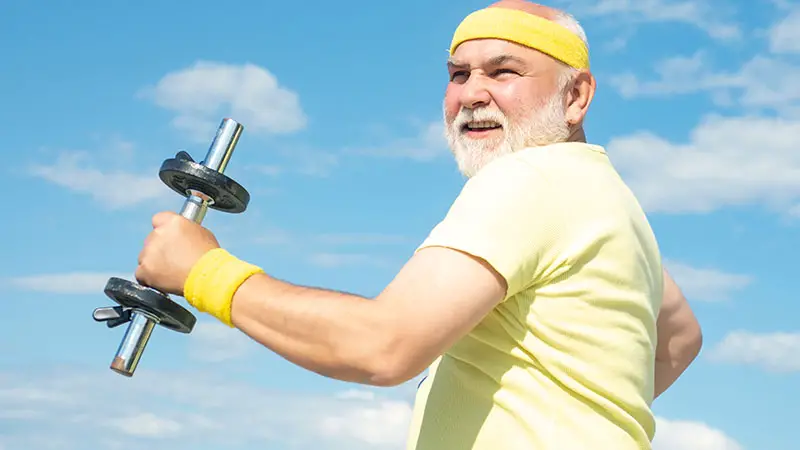
Aging is often accompanied by a natural decline in muscle mass and bone density, which can lead to weakness, frailty, and an increased risk of fractures.
Fitness activities like resistance training and weight-bearing exercises help counteract these age-related changes by stimulating muscle growth and bone remodeling.
By incorporating exercises that target major muscle groups, such as squats, lunges, and push-ups, seniors can build strength and endurance, making it easier to perform everyday activities and reducing their vulnerability to falls and fractures.
3. Improves Balance and Coordination
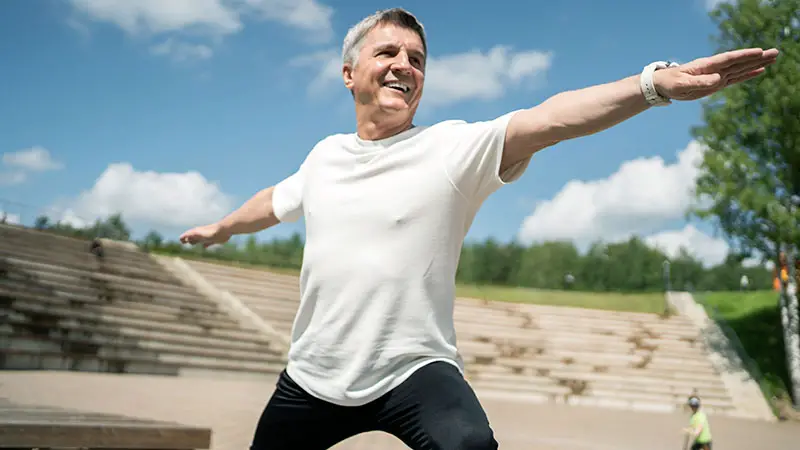
Maintaining good balance and coordination is essential for preventing falls and injuries, which can have serious consequences for seniors, including fractures, head trauma, and loss of independence.
Balance exercises, such as tai chi, yoga, and balance-specific drills, help seniors improve proprioception (the body’s awareness of its position in space), muscle control, and postural stability.
These exercises challenge the body’s balance systems, including the vestibular system, proprioceptive feedback, and visual input, leading to improvements in balance and coordination over time.
4. Enhances Cardiovascular Health

Cardiovascular disease remains one of the leading causes of death and disability among seniors, making heart health a top priority for healthy aging.
Aerobic exercises like walking, swimming, cycling, and dancing are especially beneficial for seniors because they help strengthen the heart, improve circulation, and boost overall cardiovascular fitness.
Regular aerobic exercise can also lower blood pressure, reduce LDL (bad) cholesterol levels, and improve blood sugar control, reducing the risk of heart disease, stroke, and other cardiovascular complications.
5. Manages Weight
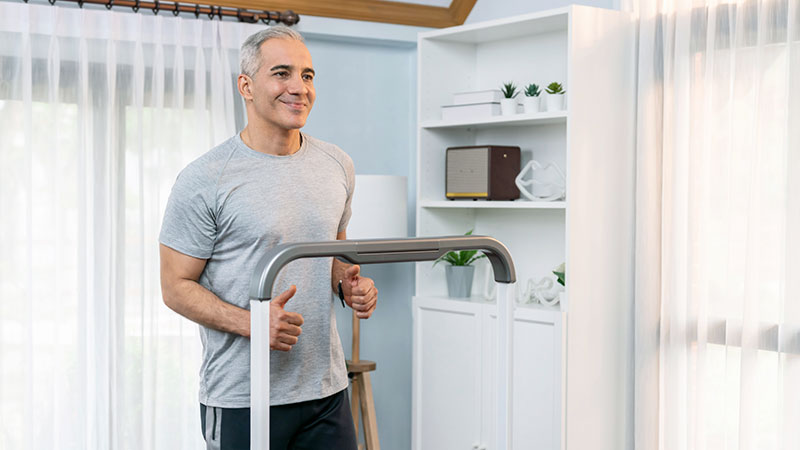
Maintaining a healthy weight is crucial for overall health and well-being, especially as we age and metabolism naturally slows down.
Regular physical activity helps seniors manage their weight by burning calories, increasing metabolism, and preserving lean muscle mass.
Additionally, exercise can help regulate appetite, improve dietary habits, and promote fat loss, reducing the risk of obesity and related health problems such as diabetes, high blood pressure, and joint pain.
By incorporating a combination of aerobic exercise, strength training, and flexibility exercises into their routine, seniors can achieve and maintain a healthy weight for optimal health and longevity.
6. Boosts Mood
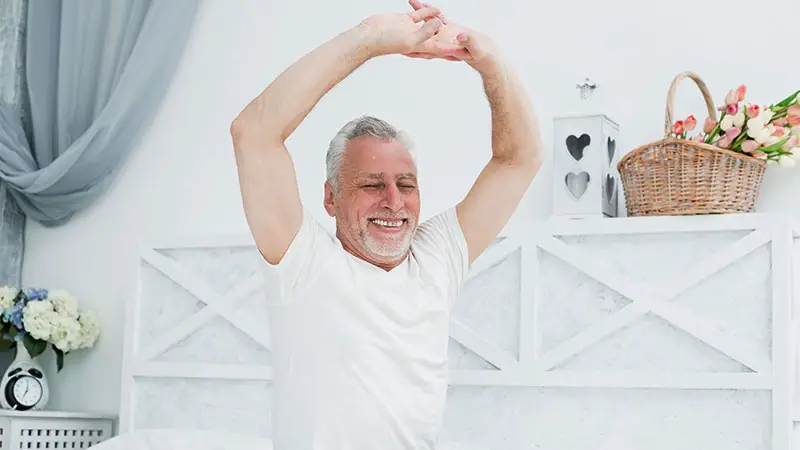
Regular exercise is not just beneficial for the body; it also has profound effects on mental health and emotional well-being.
When seniors engage in physical activity, their bodies release endorphins, which are neurotransmitters that act as natural painkillers and mood elevators.
These endorphins promote feelings of happiness, relaxation, and general well-being, while also reducing the perception of pain and stress.
Regular exercise can help alleviate symptoms of anxiety and depression in seniors, providing a natural and holistic approach to mental health management.
7. Increases Energy Levels
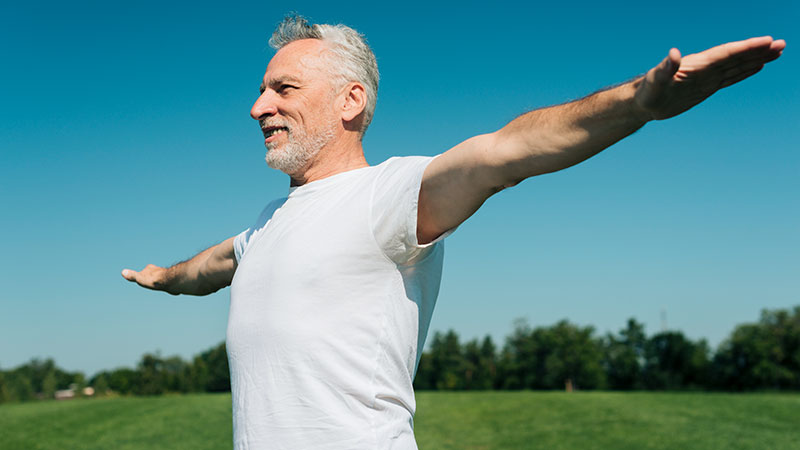
It’s common for seniors to experience a decrease in energy levels and increased fatigue as they age. However, engaging in regular physical activity can help counteract these feelings of sluggishness and lethargy.
Exercise increases blood flow and oxygen delivery to the muscles, which helps improve stamina and endurance.
Additionally, regular exercise promotes better sleep quality, allowing seniors to wake up feeling more rested and energized.
By incorporating physical activity into their daily routine, seniors can boost their energy levels and maintain a higher level of vitality throughout the day.
8. Enhances Cognitive Function

The benefits of exercise extend beyond the body to the brain. Numerous studies have shown that physical activity is closely linked to improved cognitive function and a reduced risk of cognitive decline in older adults.
Exercise promotes neuroplasticity, the brain’s ability to adapt and form new connections, which is essential for learning, memory, and overall brain health.
Regular exercise has been associated with a lower risk of developing conditions such as dementia and Alzheimer’s disease, as well as improvements in cognitive skills such as attention, processing speed, and executive function.
9. Improves Sleep Quality

Quality sleep is essential for overall health and well-being, yet many seniors struggle with sleep disturbances and insomnia.
Fortunately, regular exercise can help improve sleep quality and duration in older adults. Exercise helps regulate the body’s circadian rhythm, or internal clock, promoting a more consistent sleep-wake cycle.
Additionally, physical activity reduces symptoms of stress and anxiety, which are common contributors to sleep problems.
By engaging in regular exercise, seniors can experience deeper, more restorative sleep, waking up feeling more refreshed and rejuvenated each morning.
10. Boosts Immune Function

As we age, the immune system naturally weakens, making seniors more susceptible to illness and infection.
However, regular exercise can help strengthen the immune system and enhance its ability to fight off pathogens. Exercise stimulates the production of white blood cells, which are the body’s primary defense against infection.
It also increases circulation, allowing immune cells to travel more efficiently throughout the body. Additionally, exercise reduces inflammation and oxidative stress, both of which can impair immune function.
By incorporating regular physical activity into their lifestyle, seniors can bolster their immune system and reduce their risk of illness and infection.
11. Promotes Social Interaction

Seniors often face challenges related to social isolation and loneliness, which can have detrimental effects on their mental and physical health.
Participating in group fitness classes or activities like walking clubs provides valuable opportunities for seniors to socialize, connect with others, and build meaningful relationships.
These social interactions can help combat feelings of loneliness and isolation, boost mood, and improve overall well-being.
Additionally, exercising with others can provide motivation, accountability, and a sense of camaraderie, making physical activity more enjoyable and sustainable for seniors.
12. Increases Flexibility and Range of Motion
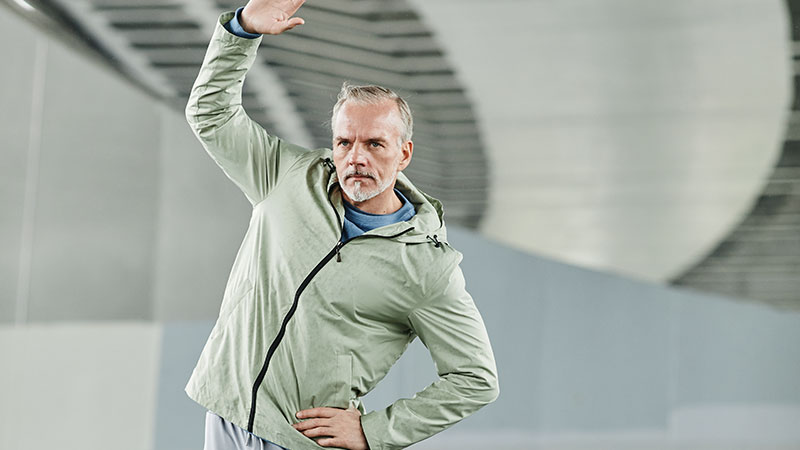
Flexibility and range of motion are essential components of physical fitness, particularly for seniors who may experience stiffness and decreased mobility due to age-related changes in the muscles and joints.
Stretching exercises, such as yoga, Pilates, and static stretching routines, help improve flexibility, loosen tight muscles, and increase range of motion in the joints.
By incorporating regular stretching exercises into their routine, seniors can enhance their ability to perform daily tasks with ease, reduce the risk of injury, and maintain independence and mobility as they age.
13. Manages Chronic Conditions

Many seniors live with chronic health conditions such as arthritis, osteoporosis, diabetes, and heart disease, which can impact their quality of life and functional abilities.
Exercise has been shown to be an effective and important component of managing these chronic conditions.
For example, strength training can help alleviate symptoms of arthritis by improving joint stability and reducing pain, while weight-bearing exercises can help maintain bone density in individuals with osteoporosis.
Similarly, aerobic exercise can help improve blood sugar control and cardiovascular health in seniors with diabetes and heart disease.
By working with healthcare professionals to develop personalized exercise plans, seniors can effectively manage their chronic conditions and improve their overall health and well-being.
14. Enhances Self-Confidence

Engaging in regular physical activity and achieving fitness goals can have a positive impact on seniors’ self-esteem and self-confidence.
As seniors become stronger, more flexible, and more physically capable, they gain a sense of empowerment and accomplishment.
Setting and achieving fitness goals, whether it’s walking a certain distance, lifting a certain weight, or mastering a new exercise, boosts self-confidence and fosters a sense of mastery and control over one’s health and well-being.
Additionally, maintaining an active lifestyle can help seniors feel more confident in their ability to age successfully and maintain their independence and vitality.
15. Promotes Longevity
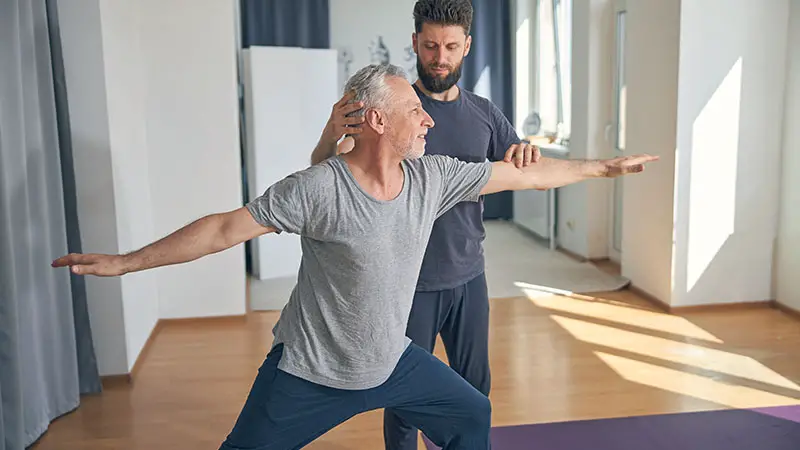
Regular physical activity is not only beneficial for improving quality of life in older adults but also for promoting longevity. Numerous studies have shown that seniors who engage in regular exercise tend to live longer, healthier lives compared to those who are sedentary.
Exercise helps prevent and manage chronic diseases, reduces the risk of falls and injuries, improves cognitive function, enhances mood and mental well-being, and strengthens the immune system all of which contribute to a longer and more fulfilling life.
By making physical activity a priority and incorporating it into their daily routine, seniors can increase their chances of enjoying a longer lifespan with better health and vitality.
FAQs
How does fitness benefit seniors’ mental health?
Regular exercise boosts mood, reduces stress, anxiety, and depression, and improves cognitive function, promoting mental well-being in seniors.
What types of exercises are recommended for seniors?
Seniors should engage in a combination of aerobic exercises (such as walking or swimming), strength training, flexibility exercises (like yoga or stretching), and balance exercises to maintain overall fitness and mobility.
Can fitness help manage chronic conditions in seniors?
Yes, exercise can help manage chronic conditions like arthritis, osteoporosis, diabetes, and heart disease by improving symptoms, reducing pain, and enhancing overall quality of life.
How does fitness contribute to longevity in seniors?
Regular physical activity is associated with a longer lifespan in seniors by reducing the risk of chronic diseases, improving cardiovascular health, enhancing immune function, and promoting overall well-being.
Wrap Up
The importance of fitness for seniors cannot be overstated. Through regular physical activity, seniors can preserve their independence, enhance their overall health, and cultivate a sense of well-being that enriches their golden years.
From strengthening muscles and bones to improving mood and cognitive function, exercise offers a myriad of benefits that empower seniors to lead fulfilling lives.
Moreover, by fostering social connections and instilling confidence, fitness becomes a catalyst for joy and vitality in the aging process.
As seniors prioritize their physical health and embrace an active lifestyle, they not only prolong their years but also savor each moment with vigor and resilience, proving that age is but a number in the pursuit of a life well-lived.
I am a fitness instructor and I have been in the industry for 9 years. I have a passion for health and fitness.
I am a fitness instructor with over 9 years of experience in the industry. My passion is health and fitness and I would love to share my knowledge with you!